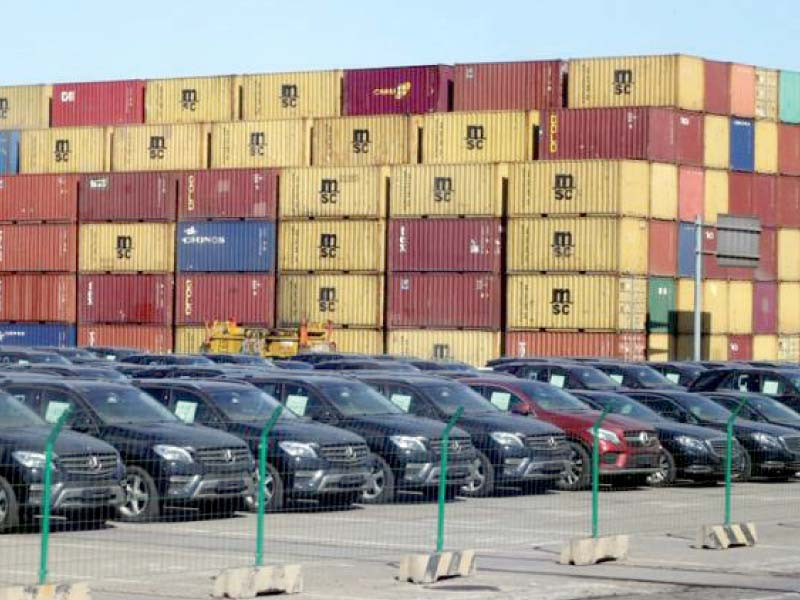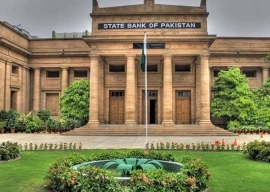
Pakistan on Friday formally approved the lifting of a ban on all types of imports but slapped up to 100% fines on goods that had reached ports by the end of July despite restrictions, removing an irritant in trade relations with the European Union and other nations.
The Economic Coordination Committee (ECC) of the cabinet took the decision a day after Finance Minister Miftah Ismail said the government was removing the ban in order to address concerns expressed by the International Monetary Fund (IMF) despite reservations by the premier.
The ECC also relaxed the liquefied natural gas (LNG) policy to open up an 800mmcfd under-construction LNG terminal for Qatari investment ahead of Prime Minister Shehbaz Sharif’s visit.
The relaxation of the policy will open up LNG import capacities to secure efficient energy supplies amid widening gap between demand and supply.
“Owing to serious concerns raised by trading partners over the imposition of the ban and considering the fact that the ban has impacted supply chains and domestic retail industry, the ECC decided that the ban may be lifted on all the items,” stated the Ministry of Finance.
Earlier, the ECC had recommended lifting the ban on July 28 except for cars, mobile phones and home appliances but PM Shehbaz rejected the decision. The ECC reviewed its 21-day-old decision and this time lifted the ban on all items.
The PM was against relaxing the conditions, as his main worry was the out-of-control trade deficit that put economic viability at stake. However, due to pressure from the IMF, EU and business community, the government did not have a choice but to give in.
The ECC recommended the release of those held-up consignments that had arrived after June 30 and up to July 31, 2022 with the payment of surcharge, it added.
It decided that a 100% surcharge should be imposed on cars, mobile phones and home appliances that reached Pakistani ports till the end of July. Other items will be subject to 35% surcharge – a rate that was 15% for violation of the ban in June.
In May, the ECC had slapped the ban on import of about 33 classes/ categories of goods covering more than 860 products and tariff lines. As of end-July, the overall import of the banned items shrank over 69% - from $400 million to $124 million, according to the commerce ministry.
But the saving of $190 million was on account of three products – cars, phones and home appliances.
Owing to serious concerns raised by the major trading partners over the ban and considering the fact that the ban impacted the supply chains and domestic retail industry, it was decided to restrict the ban to only those items that had helped contain the imports, the ECC was informed.
The ECC also approved a proposal to amend the LNG Policy 2011 for exemption from the mandatory Third-Party Access (TPA) rules for the new LNG terminals, according to the Ministry of Finance.
It was argued that the gap between gas supply and demand was widening in the country, resulting in gas load management and affecting economic activities.
Under the circumstances and to diversify the LNG import infrastructure, there was a need to support and encourage foreign private investment in new LNG terminals at their own costs and risks to meet the growing demand of LNG in the country.
Considering the objectives of attracting investment in the LNG import terminal facilities, the ECC approved the proposal to exclude the new LNG terminals and associated facilities from the application of TPA rules and allowed an amendment to Article 6.2(a) of the LNG Policy 2011. The ECC was informed that Qatar Energy had shown interest in acquiring the 800mmcfd LNG terminal capacity and buying 49% of its equity.
Published in The Express Tribune, August 20th, 2022.
Like Business on Facebook, follow @TribuneBiz on Twitter to stay informed and join in the conversation.
















1730706072-0/Copy-of-Untitled-(2)1730706072-0-270x192.webp)
COMMENTS (4)
Comments are moderated and generally will be posted if they are on-topic and not abusive.
For more information, please see our Comments FAQ